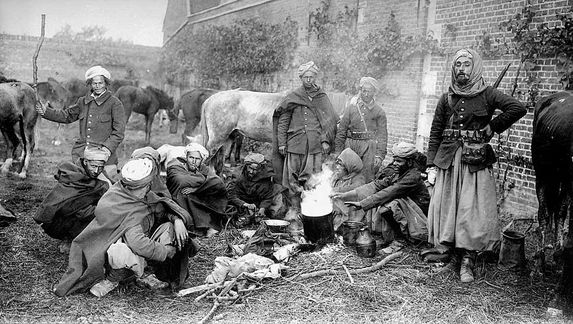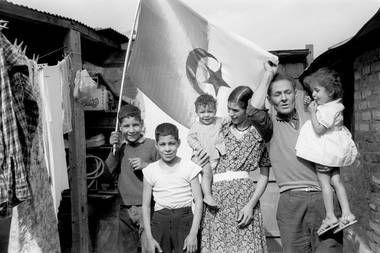
Built & non-Built Environment Professionals Meeting Place
August 31 2016
Every summer of each year, droves of North African emigrant populations established in Europe pours on the ports and airports of the countries of the Maghreb. All year round however, Remittances of the Maghreb migrants could represent a non negligible plus for the local economies.
Le Matin DZ published on 30 August 2016 this article written by Sherif Ali. It i s fair to remember that at a time where migrants / refugees fleeing their desperate situation by moving north, here is an account of the reverse movement.
General mobilization of all managers and staff on the occasion of the arrival of migrants was summoned earlier on this summer. Some of the migrants were treated for the early comers, to a personal welcome. For them, the ports and airports have been repainted and the police and customs officers, all smile and due diligence, were instructed to reserve the best hospitality and comfort.
Who are these people?
In his time, the Secretary of State in charge of the national community domiciled abroad, responded by this artifice: "There are those who reside abroad on a regular basis and who are registered in our consulates, those residing on a regular basis and who prefer not to get close to our services and are therefore, not registered, and, finally, living there in irregular or clandestine manner".
In France, they would be 5 million. In North America, they would be between 120,000 and 140,000 (110,000 in Canada, 30,000 in the USA and in Mexico 2,000). In Arab countries, they would be a few thousand and in Africa a few hundred.
According to a study by the French Institut National des Etudes Demographiques (INED), Algeria would be included among the 15 countries that provide the most migrants in the world. According to the AIDA (Algerian International Diaspora Association) http://aida-association.org/ based in London, the Algerians or people of Algerian origin living abroad in 2012, were 7 million individuals.
Until then, we talked about Algerian migration as in France, in 1947; Algerians become, officially at least, citizens called by the administration "French Muslims of Algeria (FMA)". They are not considered as foreign migrants, rather regional migrants, like the Bretons and Corsicans, even if they are, in fact, treated harshly, especially during the Algerian war of independence.
From a legal point of view, Algerian emigration began officially in France, on July 5, 1962, official Independence Day. Between 1962 and 1982, the Algerian people in France went from 350,000 to more than 800,000 people. This population that continues to grow from generation to generation is also traveling, studying, trading and settling in the five continents.
 1914 - 1918 War Algerian soldiers
1914 - 1918 War Algerian soldiers
Historically, Algerian emigrants’ migratory movements started at the beginning of the century: they are in France where the first phase of Algerian migration began in 1905. They made up the bulk of the workforce of primarily refineries and mills of Marseille, or as dockworkers on the ships.
Hundreds of Algerians are, for example, hired in the mines and factories of the North and the Pas-de-Calais, the industries of Clermont-Ferrand and Paris. As early as 1912, one speaks of a migratory movement of 4000 to 5000 Algerians who accelerates as early as 1913, thanks to the removal of the “Permis de Voyage” which was then required for Algerians in France.
Overall the second migratory wave consists of 80,000 workers and 175,000 soldiers from Algeria as part of the First World War effort. Those who are not on the front are used in armaments production, engineering, aeronautics, transport and mining.
The third wave began in 1920 with an important Kabylia component that remains important, with the migration of the inhabitants of the Oran Northwest who are beginning to gain ground.
The fourth wave begins with the end of the second world war, after 1945 where Algerians of jobs in the areas of reconstruction of the economic recovery of France, in the mines, the steel industry, industry and building.
The fifth wave began with the war of the FLN (National Liberation Front) in 1954 through 1962 with the FLN taking control of the emigration thus bearing on the liberating fight and the war effort.
Emigré, unloved, out there!
A poll by IFOP/Atlantic France, shows that 26% of the French only have a good picture of the Algerians against 71% of Moroccans and 53% of Tunisians:
So what about those who have neither title of stay or work permit, these undocumented migrants who live in complete hiding beyond even the approximate census; a former French Ambassador numbered them to be around 350,000, figure to be taken with caution, of course, with the forthcoming French presidential!
 Independence Day in Nanterre, France
Independence Day in Nanterre, France
Misunderstood here!
Our emigration is not organized socially nor culturally and today it comes even to regret "the Association of Algerians in Europe", organization under the aegis of the FLN, but that all the same managed to frame, more or less, this population from abroad. Algerian emigration to France has paid a high price and has conquered its letters of nobility during the revolution. Grouped together in the Federation of France seniors contributed financially and more, to advance the liberation struggle: Mourepiane and the events of October 17, 1961 are the markers. Today, it (Federation of France) continues to be marked by its historical, political and even ethnic divisions. It is concerned about its daily existence as the emigrant, the “beur” and, paradoxically, "the Franco-Algerian" is above all a social condition that is difficult to get out.
The fact remains that these Algerians are visible and flaunt their love of country at every occasion and in every match of the national team of football where they deploy the national emblem, a way as any to show their presence and to remind their rulers of their presence.
Can we, however, talk about diaspora?
 The Messaoudi's shop
The Messaoudi's shop
Yes, indeed and to see and hear some French public figures of Algerian origin who constantly assert their belonging to Algeria; include not in order, Isabelle Adjani, Leïla Bekhti, Sheryfa Luna, Smaïn, Rachid Taha, Rachid Bouchareb, Rachid Arhab, Zinedine Zidane, Brahim Asloun and many others who belong to the world of culture and sport. Or still Fadela Amara, Leila Aichi, Kader Arif, Azouz has, Nora Berra, Malika Benarab-Attou, Yamina Benguigui, Malek Boutih, Samia Ghali, Bariza Khiari, Tokia Saïfi, Karim Zeribi who belong to the world of politics.
We can even add to this list which is not exhaustive, Rachida Dati, whose mother was Algerian. All this to say that the human potential is there but that institutional mechanisms, those who assist in lobbying are lacking as for example the often announced "Advisory Board of immigration" but delayed and then stored in the drawers of "the Secretary of State" in successive Sellal Governments.
What about the return of emigrants to their country?
This phenomenon of return known to retirees, has spread in recent years among the young graduates and experienced who have accumulated a little capital, looked at to return to the country. Apparently and to hear them, they feel no regret to leave France and Europe where there is, according to them, discrimination in employment and housing. A quota should be reserved for this category of immigrants, eager to participate in the development; this formula, if it were to be retained by the Government, would give the opportunity to the beneficiary immigrated to establish themselves in business purchasing assets in hard currencies.
The manna of migrants
According to the World Bank, remittances of workers migrated to developing countries are expected to increase by more than 6% this year. India and China are the first beneficiaries of these funds with $70 billion by each country. In 2012, these funds have reached the threshold of $406 billion, representing an increase of 6.5% from 2011. These flows are expected to increase 8% in 2013, 10% in 2014. For some African countries, remittances from immigrants represent nearly 10% of GDP. Nigeria is in the lead with $21 billion in 2012 followed by Sudan, Kenya, Senegal and South Africa. In North Africa, Morocco has the lion's share with more than $6 billion.
Emigrants, where went straight, their currencies?
Questioned about the contributions of migrants established abroad, to the economy of the country, Belkacem Sahli, former delegate Minister in charge of the national community abroad has estimated that "their contribution is insignificant, the amounts flowing through the banking channels did not reach the desired level, and compared to the neighbours in the Maghreb, we are the last".
Maghreb immigrants have transferred to their respective countries some $3 billion and €15 million. The account was given by the European Investment Bank, which has just revealed that Algerians are ahead of the Moroccans with $2 billion and €13 million and Tunisians with €84 million. The Bank didn't tell, however, where this money goes once in the bled; obviously it is not in its prerogatives. According to some testimony from migrants, this windfall is useless in any case, for the country’s economic development. Currencies are traded "on the black market". Even retirees resigned themselves to it and take advantage, as do the barons of the informal!
It must also be said that all insurance from ministers and other institutional measures to restore a climate of confidence did not have the echo resonance with migrants of all generations, judging by the low level of money transfer.
Year in, year out, migrants come back to spend their holidays and they leave with the feeling that the country is prosperous, thanks to its oil which they feel, is also theirs. The country is full, according to them of everything and can, and does without their meagre pay, though denominated in hard currency. And in absolute terms, "If Algeria of today is in crisis, recalled precisely an emigrant, is not of our making as many of us leave all of even a portion of their savings into the coffers of airlines, travel agencies, traders and, thus, participate in the economy of the country."